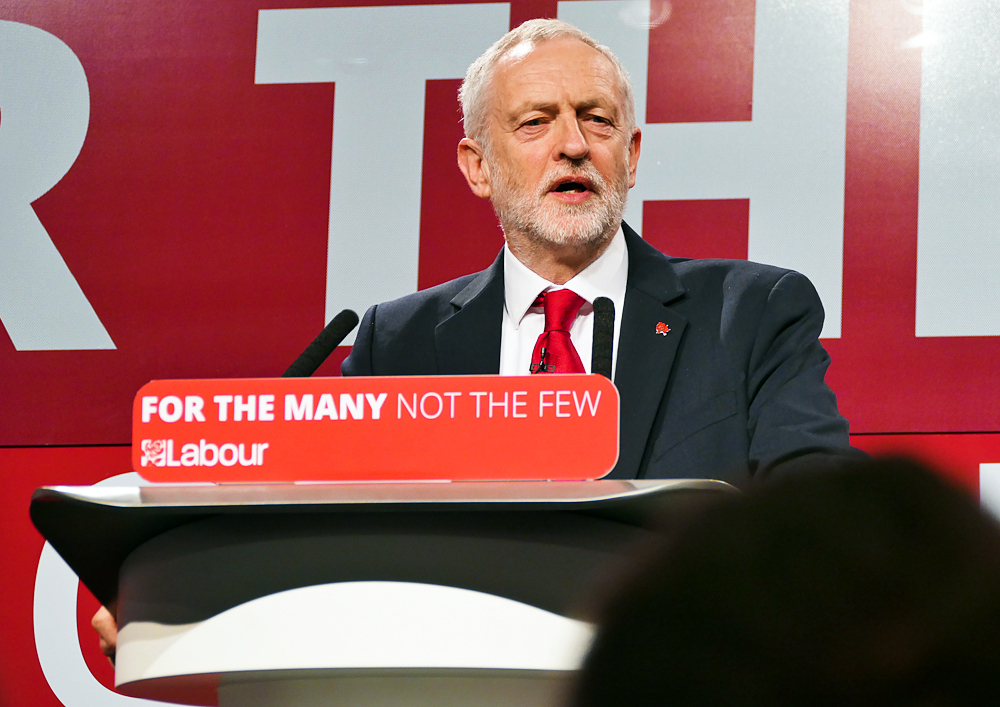Labour’s renationalisation plans could cost the UK a colossal £196 billion, according to new research by the Confederation of British Industry.
The party plans to renationalise train companies, Royal Mail, water and energy utilities, including National Grid, the electricity transmission networks, distribution network operators and gas distribution networks in England, Scotland and Wales.
But this could have an upfront cost equivalent to taking every penny of income tax paid by UK citizens in a single year, the business group has said.
Rain Newton-Smith, chief economist at CBI, called the statistics “beyond eye-watering” and said this was only the starting point.
“It doesn’t take into account the maintenance and development of the infrastructure, the trickle down hit to pension pots and savings accounts, or the impact on the country’s public finances.
“There are so many other genuine priorities for public spending right now, from investing in our young people to the transition to low carbon economy and connecting our cities and communities. These issues are what keep businesses up at night and what they want to see the Government get on with addressing.”
His concern is echoed by chief executive of Energy Networks Association (ENA), David Smith. “At a time of climate emergency, Labour’s plans for state ownership will not only hit the public hard in the pocket but also cause completely unnecessary delay to meeting our climate targets.
“Thanks to the networks’ relentless focus on innovation and customer service, we have one of the cleanest and most reliable energy systems in the world. Rather than wasting time and resource we don’t have on state ownership, we should keep our attention firmly on delivering a Net Zero energy system the public needs.”
However, Labour has branded the research “incoherent scaremongering”, saying that CBI had used a number of arbitrary, exaggerated and misguided assumptions.
“It is disappointing that the CBI seems incapable of having a grownup conversation about public ownership – which is hugely popular and common across Europe. It sadly reveals that they are more interested in protecting shareholders than in creating a fair economy.”
The cost of renationalisation
CBI worked out the market value of the utilities using the latest value of the asset base of each and multiplied it by a mark-up of 30%. It claimed that this 30% was based on similar historical takeovers.
This has been debated by Labour though, who say that such a premium is unrealistic. The party has previously stated that nationalisation would be “cost-neutral because you would be bringing into public ownership an asset.”
Furthermore, CBI’s research claims that there could be a 10.7% increase in debt, bringing national debt to more than £2 trillion or 94% of GDP. This would bring it in line with that seen in the 1960s and cost the government £2 billion a year.
As well as effecting international investor confidence in the UK, “Under Labour’s plans, savers and pensioners could also suffer an estimated £9 billion loss to their holdings, which translates into £327 for every household in the country,” the research continues.
Critics however, have highlighted that the richest 10% own 290 times more in assets than the poorest, thus it is not likely to be those most in need who loose out through nationalisation.
Crucially as well, the CBI research does not take into account profits the government would receive from owning the utilities.
“The CBI’s analysis fails to assess the possible impact of nationalisation on the public finances in a balanced way. The upfront costs have likely been inflated by the choice of assumptions, and any public income from the newly purchased companies has been excluded from the calculation entirely,” said Alfie Stirling, the head of economics at leftwing thinktank New Economics Foundation.
Labour’s renationalisation plans
When announcing its plan to renationalise the energy sector earlier this year, Labour said that it would “radically transform” energy to help the country meet decarbonisation targets and protect energy as a human right.
“Privatisation of the UK’s energy grid is ripping off customers. 25% of energy bills is paid out to network companies. This is used to line the pockets of shareholders, with over £13 billion paid out in dividends over the last five years.”
It plans to create the National Energy Agency, which will replace National grid, maintaining transmission infrastructure, ensuring access to electricity as a human right and overseeing Labours target of 60% renewable energy by 2030.
As part of the renationalisation, 14 Region Energy Agencies will also be created that will replace DNOs, and will be responsible for rolling out the UK’s EV charging infrastructure as well as other tasks. Local Energy Communities will also be established to develop small scale energy generation and engage with distribution at the micro level. These will be wholly community owned and non-profit making.
Rebecca Long Bailey MP, Labour’s Shadow Business, Energy and Industrial Strategy Secretary, said:
“Only by taking the grid into public ownership can we decarbonise the economy at the pace needed to secure the planet for our children and grandchildren while ending the rip off, creating good jobs in local communities and making heating and electricity a human right.
“That’s why public and collective ownership is a fundamental part of Labour’s Green Industrial Revolution.”
This is not the first time that the cost of Labours renationalisation plan has come in for criticism, with a damning report compiled by economics consultancy Frontier Economics on behalf of the ENA released last month stating that nationalisation would increase consumer costs and place decarbonisation goals of net zero by 2050 at risk.






